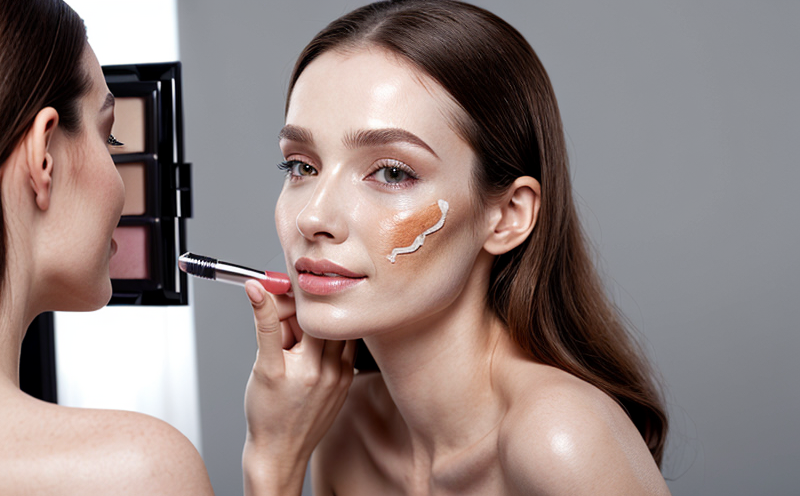Dermatological Testing of Hyaluronic Acid Formulations
Understanding the dermatological impact of hyaluronic acid (HA) formulations is crucial for ensuring that cosmetic products are safe and effective. This service focuses on evaluating the safety, efficacy, and tolerability of HA-based products through rigorous testing protocols aligned with international standards like ISO 10993-10 and IEC 62785.
Hyaluronic acid is widely used in cosmetic formulations for its moisturizing properties. However, the safety profile of these formulations can vary significantly depending on their composition, concentration, and intended use. Dermatological testing ensures that products not only deliver their intended benefits but also do so without causing adverse effects such as irritation or allergic reactions.
The testing process involves several stages, including initial formulation assessment, in vitro testing using human skin equivalents (HSEs), and in vivo studies on live subjects. This comprehensive approach allows for a thorough evaluation of the product's behavior under various conditions, providing valuable insights into its potential risks and benefits.
Key parameters measured during this testing include:
- Skin irritation potential
- Allergenicity
- Tolerability
- Inflammatory response
- Moisture retention
The testing protocol is meticulously designed to simulate real-world usage scenarios, ensuring that the results are relevant and actionable. This involves:
- Formulation preparation with controlled variables
- Application methods tailored to the product type (e.g., topical application)
- Assessment of immediate post-application effects
- Observation of long-term effects over extended periods
The use of advanced instrumentation such as confocal microscopy and real-time optical imaging provides detailed insights into the skin's response to HA formulations. This data is crucial for optimizing product performance while minimizing risks.
In vitro testing, using HSEs, allows for high throughput screening, reducing the need for animal testing. This not only enhances ethical standards but also accelerates the development process by providing early-stage insights into potential issues.
For in vivo studies, subjects are carefully selected based on their skin type and condition to ensure that the results accurately reflect real-world usage. These studies are conducted under strict protocols to minimize variability and enhance reproducibility.
| Parameter | Description |
|---|---|
| Skin Irritation Potential | Evaluation of redness, swelling, and itching after product application. |
| Allergenicity | Assessment of immune response using IgE-based tests. |
| Tolerability | Measurement of skin barrier integrity and hydration levels. |
| Inflammatory Response | Evaluation of pro-inflammatory cytokine production in HSEs. |
| Moisture Retention | Quantification of water content in the stratum corneum using capacitance measurements. |
Quality and Reliability Assurance
The reliability of testing results is paramount for ensuring product quality. Our laboratory adheres to strict quality management systems that are ISO 9001:2015 certified, ensuring consistent and accurate results. This commitment extends to our personnel, who undergo regular training on the latest testing methodologies and equipment.
We use state-of-the-art instrumentation from leading manufacturers such as Thermo Fisher Scientific and Carl Zeiss, which are regularly calibrated to maintain accuracy. Our facilities are ISO 17025 accredited, ensuring that our laboratory meets the highest standards for technical competence in testing and calibration services.
The quality of our testing is further enhanced by a robust data management system that ensures traceability and transparency throughout the entire testing process. This system allows us to track every aspect of the testing from formulation preparation to final report generation, providing clients with comprehensive records of all test activities.
International Acceptance and Recognition
The global nature of the cosmetic industry means that product safety standards must be recognized across borders. Our dermatological testing services are aligned with international standards, ensuring that results are accepted worldwide. This includes compliance with:
- ISO 10993-10: Biological evaluation of medical devices – Part 10: Repeated dose toxicity
- IEC 62785: Safety of Medical Devices – General requirements for the safety and performance of medical devices intended to be used in a home environment
This ensures that our clients can confidently market their products globally, knowing that they meet stringent international standards.
Our laboratory is also recognized by regulatory bodies such as the FDA (Food and Drug Administration) and EU Notified Bodies. This recognition adds to the credibility of our testing services and enhances client confidence in our capabilities.
Use Cases and Application Examples
Our dermatological testing services are particularly valuable for:
- New product launches
- Formulation optimization
- Compliance with regulatory requirements
- Product safety evaluation
| Application Example | Description |
|---|---|
| New Product Launch | Evaluation of a new hyaluronic acid serum for its safety and efficacy. |
| Formulation Optimization | Determining the optimal concentration of HA in a moisturizer to enhance performance without causing irritation. |
| Compliance with Regulatory Requirements | Ensuring that a HA-based product meets all relevant international standards before market launch. |
| Product Safety Evaluation | Evaluating the safety profile of a HA formulation in both cosmetic and medical applications. |





